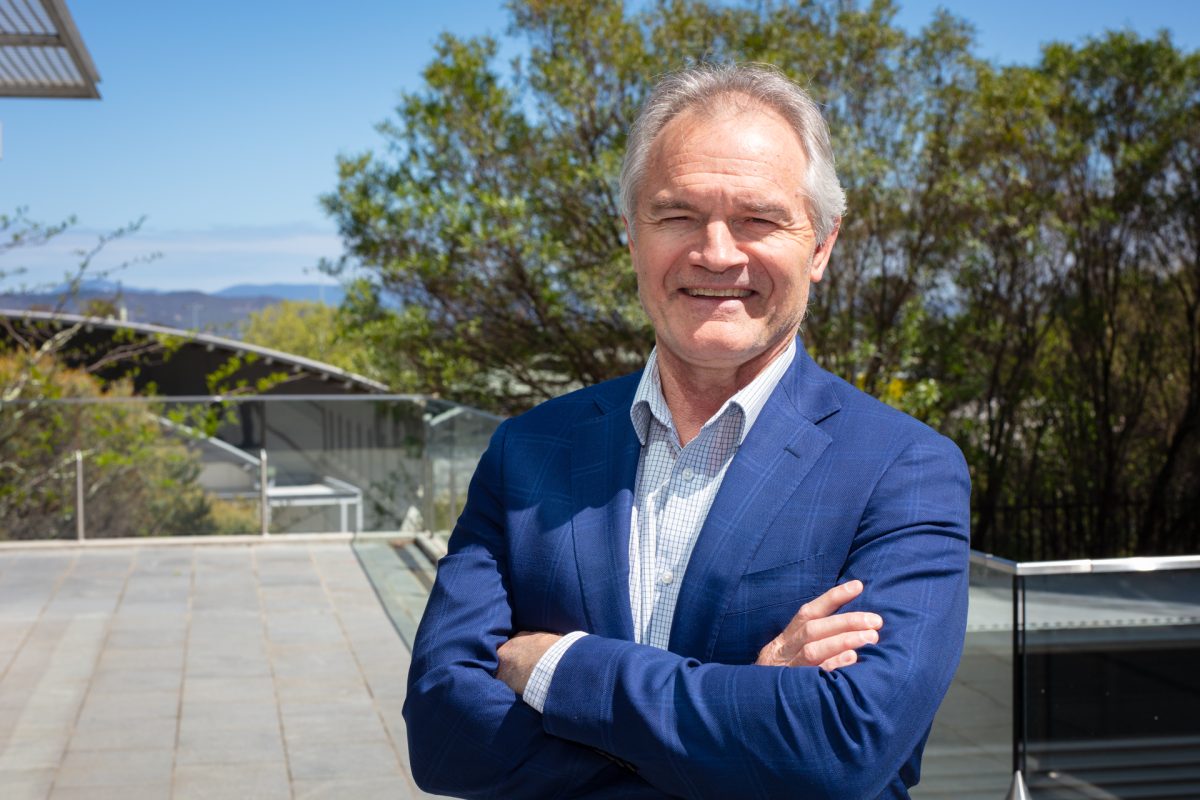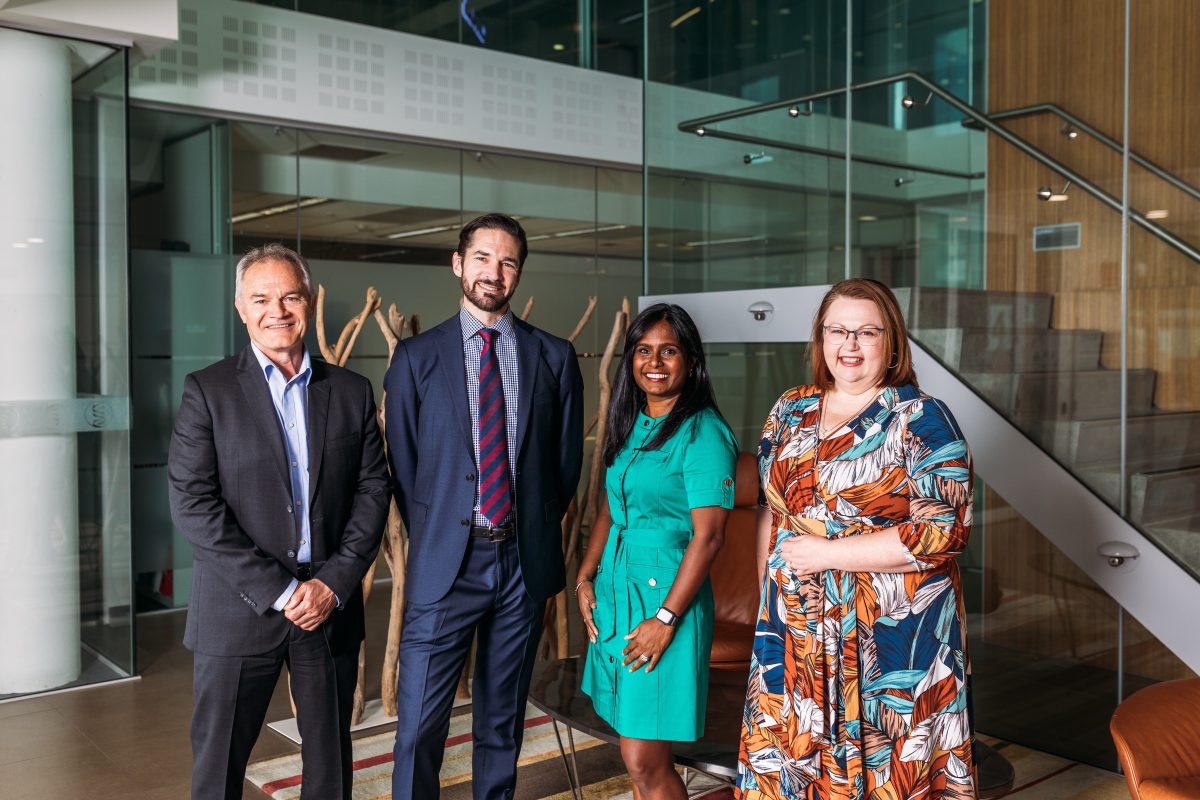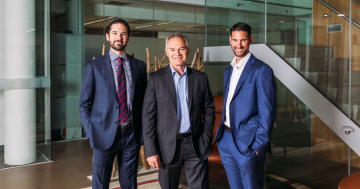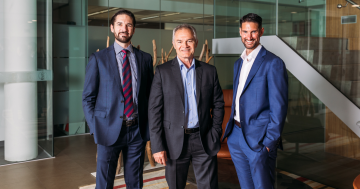
Tim Ryan leads a team at RSM in Canberra that can help project owners get it right the first time. Photo: Thomas Lucraft.
The success of any public sector project can often be measured by how well one factor has been met: the scope.
Getting the scope of work right at the beginning of a project is key to getting the most out of your consultant and maximising value for your stakeholders.
Miss the mark and any number of things can go wrong, ultimately impacting time, cost and reputation, according to RSM’s government and public sector consulting partner, Tim Ryan.
“There’s a risk of misalignment downstream from numerous perspectives, the main one being stakeholder expectations where the solution doesn’t meet the user’s needs,” Tim says. “That means potential for re-work, time delays and budget blowouts.”
Tim says “implicit” is a dirty word in scope development. But when you’re eager to get cracking on a project it can be tempting to gloss over the nuance as a “we know what we’re doing” situation, or make assumptions on where responsibilities lie.
“Those assumptions can be a killer. In developing scope statements, every element of capability must be explicitly analysed, defined and documented, as either in or out of scope,” Tim says. “If you take a one-size-fits-all approach, you invite outcomes that are too generic, and possibly miss critical downstream dependencies or constraints.”
Tim says this is often an issue with digital transformations, where the focus is limited to the technology solution at the expense of human elements such as the development of operating procedures, user guidelines and training.
“If you inadvertently overlook the people side of the transformation, you can’t adequately support the stakeholders through that change,” he says.
“You can also fail to capture accurately the requirements of a particular stakeholder group and risk developing and implementing a solution that’s too narrow in its functionality.”
When developing a project’s scope, Tim recommends starting broad from the outset and “whittling down”, rather than starting narrow and building up.
“Start too narrow and before you know it, you’re caught in that stovepipe,” he says. “At the scoping stage you’re better off starting broader and working downwards to derive a crisp articulation of needs, objectives and outcomes.”
Aside from understanding the specific needs and/or objectives of the relevant organisation or division, context is another critical consideration.
With digital transformations for instance, a consideration of the broader business context might warrant deeper appreciation of policy reforms, legacy system changes or whole-of-government initiatives, either in progress or upcoming.
“In any digital transformation, you must consider the people, technology, processes, budgets etc, but always in the context of the environment within which the solution is to fit,” Tim says.
“What emphasis or priority needs to be placed on particular components? Where are related elements being addressed by other teams or complementary projects, internal and/or external to the organisation?
“Often it’s the sum of the parts that’s important. Whilst you have a program or project scope, it’s usually just one part of a broader ecosystem – how does it fit with the rest of the puzzle, including business as usual?”

RSM’s government and public sector consulting team is highly experienced. Photo: RSM.
It’s also important to bear in mind through the lifespan of digital transformations – sometimes extending over multiple financial years – that scope is a living, dynamic component.
Tim warns against a “set and forget” mentality.
“Your scope must be continually questioned, reviewed, baselined and re-baselined. It needs to be included in ongoing tracking and governance reporting,” he says. “It’s crucial to put in place mechanisms for checks and balances.”
Engaging an independent consultant to co-design scope through a collaborative approach comes with numerous benefits, enabling clear identification of context, needs, objectives, dependencies and risks with objectivity.
“I am fortunate to work with an expert team comprising senior consultants, skilled in a number of disciplines that underpin digital transformations,” Tim says. “This includes extensive experience in all aspects of program and project design and management for government and the public sector.”
Critically, the team has an appreciation for what successful implementation looks like.
“With complex multi-disciplinary transformations – where there are many internal and external stakeholder groups involved – it can be hard to visualise success. Setting scope can sometimes be a theoretical exercise and it shouldn’t be,” he says.
“One of the things we pride ourselves on is understanding what it takes to implement a successful digital transformation – the benefits that can be realised and the risks that need to be managed as the implementation progresses.
“A consultant with the experience to co-design scope, facilitate engagement with multiple stakeholders and embed fit-for-purpose controls can be a significant value add. They bring an impartiality and a dedicated focus up-front on defining and building tangible products and processes that enable downstream success.”
With more than 100 years of experience supporting Australian business, RSM is a new choice in government consulting.
For more information contact RSM’s government and public sector consulting team.















